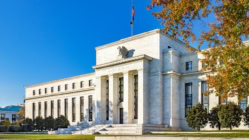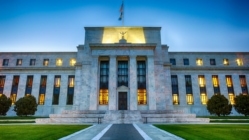LOs Can Quote ANYTHING When You’re Not In Contract
We lost a borrower during the pre-approval stage to another loan officer (LO) who quoted an “estimated” interest rate that was 1/4% lower than ours.
We tried to explain to the borrower that LOs often quote below market rates to lure borrowers in before they’re in contract – but our borrower fell for the ruse.
LOs get away with this because they know they don’t have to lock in the rate before borrowers are in contract. The LOs hope that rates will fall, that borrowers will have short memories, that they can tell borrowers rates went way up since the last quote, or that borrowers just won’t want to go to the trouble of going to a new lender.
Anyway, when our borrower was actually in contract and the LO had to actually lock in the rate he was quoting – his rate was 1/2% HIGHER than our rate.
We know this because the borrower came back to us to see where our rates were after he received the updated quote from the LO – and we’ll be closing in a few weeks.
So, this is just a reminder to not fall for artificially low-rate quotes during the pre-approval stage. This is also why we encourage borrowers to see our rates on our website – so they know we’re legit.
Owner-Occupancy Fraud Alert
We are seeing a resurgence of borrowers trying to get away with owner-occupancy fraud. This is shocking to us when it is so much easier to detect in this day and age of AI and more open public records of every type.
The incentive for this fraud is obvious, as investor financing was made far more expensive by Fannie Mae and Freddie Mac after COVID. Investor financing rates can be as much as 1% to 2% higher than owner-occupied financing (depending on credit score and down payment).
BUT – no matter how much lower owner-occupied financing rates are, risking fraud is not ever worth it nowadays. Underwriters often sniff it out during the underwriting process, and if they don’t, the investors that buy or back the loans often do after close – at which point they call the loan due or force the mortgage bank that made the loan to “buy” it back with a huge loss. And worse – loan fraud is a federal offense, and borrowers are risking a knock on the door from the FBI.
Some of the signs of potential fraud include: 1. Retaining ownership of a larger and nicer home; 2. Moving farther away from an employer when working from home is not an option; or 3. Having a mailing address that is different from the property address. I should note that these signs do not always mean occupancy fraud, and they can often be explained.
And recently we had a person acting on behalf of another borrower who was ostensibly going to be the owner-occupant; it became apparent though that the “owner-occupant” had almost no understanding of what was taking place – so we walked away from the transaction (it didn’t help that they tried to bribe the appraiser with cash too).
Inflation Again = Higher Rates Again
Wholesale inflation (PPI) came in “hotter” than expected today – and rates shot higher. This is because hot inflation makes it much less likely that the Fed will lower rates.
BUT – this is a reminder that the Fed is not the only entity that controls rates. The bond market overall has a strong influence – and, as soon as the economy shows stronger signs of weakness or even a recession, or if the stock market corrects significantly, or if there is a financial event (currency crisis overseas, banking crisis, etc.), rates could fall sharply. The Fed rarely just lowers rates because they can; they more often than not are just following adverse events and lowering to stimulate the economy.
Note: Jim Bianco predicted these hot inflation prints last year, so he’s a great follow on X.
























